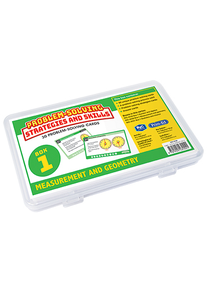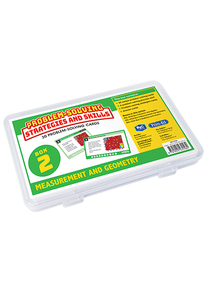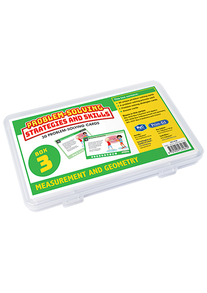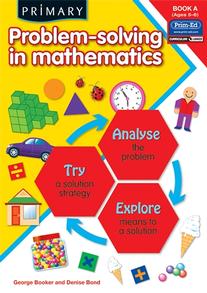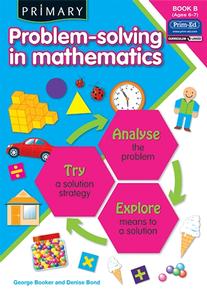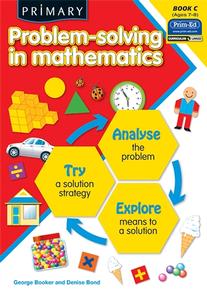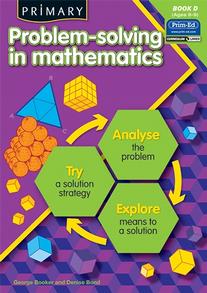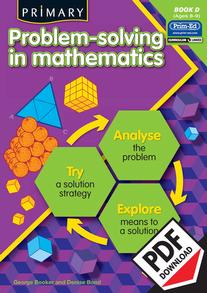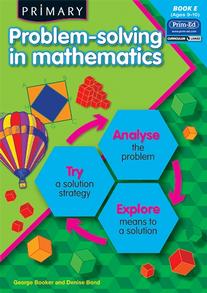-
0
Your cart is currently empty.
-
0
Your cart is currently empty.
Problem Solving Worksheets & Workbooks
Are you looking for fresh, new ideas to help your pupils with maths problem-solving? Problem-solving is a key skill that children need to learn to be successful in maths. Maths education should prioritise problem-solving, as it provides children with the foundational skills they need to tackle any challenge that comes their way.
Do you have all you need to teach problem-solving in maths?
Prim-Ed Publishing has many great resources available that can help teachers successfully implement problem-solving into their maths curriculum. From boxed resources and worksheets to teachers notes and photocopiable books, covering a wide range of exciting and high-interest problem-solving activities, we have the tools to support teachers to confidently deliver problem-solving in class.
What is problem-solving?
In its simplest form, problem-solving is the process of finding solutions to problems and challenges that we encounter in our lives. It is a fundamental skill that we use daily, often without even realising it. The ability to solve problems often depends on our capacity to think flexibly and see things from different perspectives.
With problem-solving embedded at the heart of all maths lessons, pupils can master the core concepts and strategies needed to succeed in any situation.
Why is mathematics problem-solving important?
At every stage of life and in every development context, problem-solving skills are invaluable.
Whether we are negotiating with a client, tackling a challenging task at work or simply navigating our way through crowded streets and busy social situations, problem-solving skills help us to cope more effectively with the obstacles and challenges we encounter. Fortunately, these skills can be learned and developed through education.
Developing problem-solving skills in young learners
Problem-solving should be at the heart of maths education because it is a fundamental life skill. By teaching pupils how to break down a problem into smaller steps, you can help pupils overcome their natural aversion to difficulties and give them the confidence to tackle anything that comes their way.
Learning to solve problems encourages mathematical thinking
One of the benefits of problem-solving is that it encourages pupils to think mathematically.
Mathematical thinking enables us to make sense of the world around us using numbers, shapes and patterns. It helps us understand relationships, detect trends and make predictions. Mathematical thinking is not just about being able to do sums; it’s a way of looking at and understanding the world.
In mathematics, pupils learn to analyse the information given in maths problems and then use their maths knowledge and skills to find answers.
Problem-solving skills in primary mathematics
Problem-solving skills are best developed through opportunity and practice. Teachers must provide opportunities for young learners to engage in problem-solving activities regularly.
By developing the ability to problem-solve, pupils gain a better understanding of the concepts and skills underlying mathematical objectives, concepts and processes. In addition, problem-solving allows children to practise critical higher-order thinking skills such as reasoning, interpretation, synthesis and evaluation.
A problem-solving approach to teaching
Problem-solving should be taught explicitly, with rich mathematical tasks and practice opportunities included in every lesson. This also involves developing pupils’ understanding of mathematical concepts such as:
- Number
- Algebra
- Shape and space
- Measures
- Data
There are many ways to incorporate problem-solving into your classroom lessons.
- Problem-solving activities and worksheets can be used to assess pupils’ understanding.
- Provide opportunities for pupils to engage in collaborative problem-solving tasks, with partners or groups.
- Challenge young learners with problems presented visually, such as tasks interpreting the data in tables, graphs and charts.
- The three-book series, Maths through Language, is a great way to integrate language into your maths lessons.
- Hands-on games and puzzles come in all shapes and sizes and can be adapted to suit any age group or ability level.
- Puzzles will help pupils develop patience, persistence, and attention to detail – all essential qualities for good problem-solvers.
Problem-solving resources from Prim-Ed Publishing
With Prim-Ed Publishing, teachers have access to a wide variety of problem-solving resources – including worksheets, boxed materials, photocopiable books, ebooks and digital resources – that provide engaging activities designed to help pupils thrive in this area.
Our problem-solving resources are designed to engage pupils and focus on key problem-solving strategies, such as visualising, reasoning, working systematically and making models and diagrams.
Our resources include extensive background information, curriculum links, extension activities and teachers notes to teach young people the specific skills needed for problem-solving.
A few of the most popular products available from Prim-Ed Publishing include:
- Maths Through Language
- Problem-Solving Strategies And Skills Maths Cards: a collection of question cards and answers. Choose from
- Measurement and Geometry
- Number and Algebra
- Statistics and Chance
- Primary Problem-Solving In Mathematics
Prim-Ed Publishing's problem-solving resources will support teachers and help to develop pupils' problem-solving skills, encouraging mathematical thinking along the way.
Why not browse our full range of mathematics resources today?
Frequently asked questions
What is problem-solving in primary maths?
One of the most important skills pupils learn in maths is how to solve problems. A maths problem can be defined as a question or task that requires pupils to use their skills and knowledge to find the answer.
What are some of the best problem-solving techniques?
There are a number of problem-solving techniques that can be useful for pupils.
- One strategy is to use logical reasoning, connecting the facts and evidence to reach a conclusion.
- Another strategy is to visualise the problem, picturing it in your mind and exploring different solutions.
- You can also break the problem into smaller pieces, analysing each part and looking for patterns.
- Finally, it can be helpful to get feedback from others and ask for their suggestions.
How can problem-solving skills be taught effectively in the mathematics curriculum?
There is no definitive way to teach effective problem-solving skills, as the approach will vary depending on the problem and the child's age. However, there are some different approaches that can be useful.
- Strategic thinking: teaching pupils to solve problems through strategic thinking can be helpful.
- Presentation styles: problems can be presented visually to help pupils see the relationships between different aspects of the problem.
- Spatial visualisation exercises: help pupils understand relationships between objects in space, which can be helpful for solving mathematical problems.
